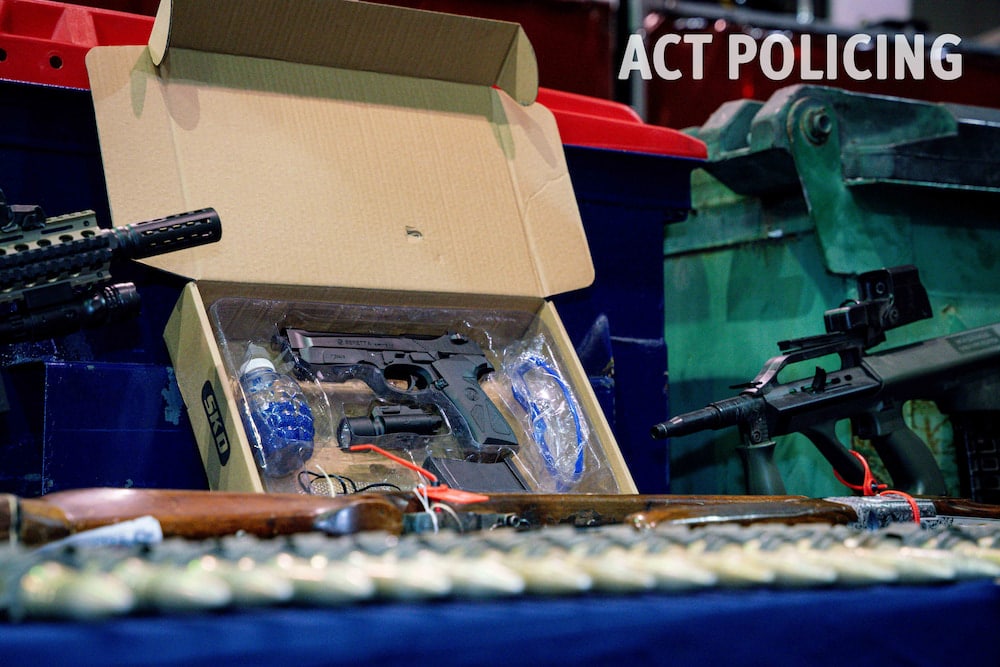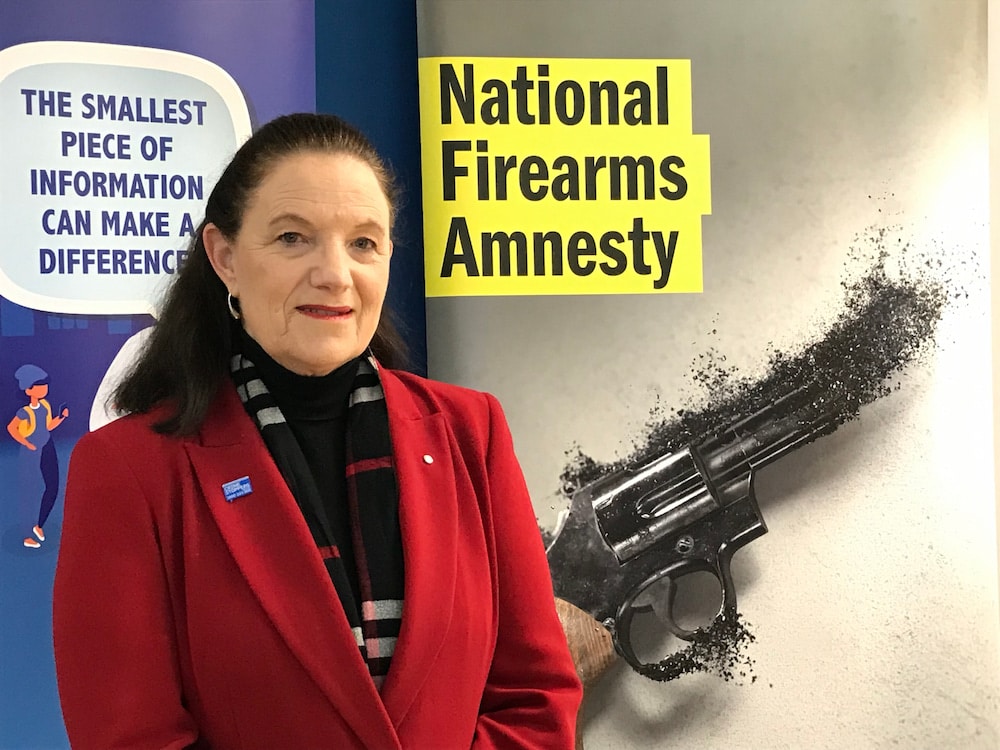Since the National Firearms Amnesty began at the start of July, Canberrans have handed in more than 350 unregistered and illegal firearms, and 70kg of unwanted ammunition. It’s a pleasing response, police say, but they know there’s more out there.
“For everyone’s safety, we need to get as many guns out of the community as we possibly can,” said Detective Sergeant Rodney Swain, Deputy Registrar Firearms.
Tomorrow (Thursday 5 August), ACT Policing and their partners, ACT Region Crime Stoppers, will talk to the public in Tuggeranong, which has some of the ACT’s highest responsible gun ownership.
They will hold a stall outside Woolworths in South.Point (formerly the Hyperdome) from 9.30am to 3.30pm. Please do not bring firearms to this event.
Volunteers from Crime Stoppers and representatives from community policing and the ACT Firearms Registry will talk about the amnesty, explain how and where to safely dispose of a firearm, and talk to the community about how sharing information with Crime Stoppers about suspicious and illegal activity helps to keep Canberra safe. They will also have firearms and related items on display – including illegal gel blasters, which look identical to military weapons. There’s also the chance to answer a survey and get a gift.
“Much as this campaign is largely aimed at unregistered guns, we’re bearing in mind that there is a significant interest in the south of Canberra in firearms and firearms sports,” Sgt Swain said.
In fact, Tuggeranong has a disproportionately large number of licence holders and registered firearms, Sgt Swain said; well over half of all firearms licences in the ACT are south of Woden.
“People involved in firearms sports are some of the most conscientious in terms of wanting safe storage of firearms and wanting firearms regulation in general to be successful. So we’re hoping to get a bit of buy-in from the community in the south of Canberra.”

Since 1 July, Canberrans have handed in 355 firearms, including 10 handguns and a flame-thrower, police said.
“Each of these firearms will be destroyed or properly registered,” Sgt Swain said. “Those destroyed will not be able to fall in to the wrong hands and be used for criminal activity.”
Police have also received some historically significant firearms: World War I rifles and a century-old USA military pistol. They will offer these to museums for their collections.
Gun amnesties have taken roughly a million firearms out of the community since 1996; they are one of the most successful community safety campaigns in Australia’s history, Sgt Swain said.
In 2017, a three-month Crime Stoppers campaign across Australia was held; more than 57,000 firearms were handed in, with nearly 2,500 parts and accessories, and more than 80,000 rounds of ammunition. In the ACT alone, 699 firearms were handed in, and 60 parts and accessories surrendered.
“You would want to think that was the end of that, and that we got a lot of the unwanted and unregistered guns off the streets,” said Diana Forrester, chair of Crime Stoppers Australia and ACT Region Crime Stoppers. “But in actual fact, they still continue to increase in number.”
The ACT still has the lowest rate of gun ownership in the country, and one of the lowest rates of violent crime and gun crime – but as the population has grown, there has been a year-by-year increase over the last decade of over 300% in the number of firearms licences issued in the ACT. With that, of course, Sgt Swain said, comes an increasingly large number of registered firearms.
“Most firearms that end up on the black market come from burglaries. So, with more firearms stored in the community, more are available to be stolen,” Sgt Swain said.
The amnesty aims partially at these guns, but mostly at ‘grey market’ guns: guns by and large that were owned legally before 1996, but needed to be registered after John Howard introduced gun control after the Port Arthur massacre. Some of those weapons have been stolen or handed down through generations; others found in deceased estates or in homes when people move in.
“If there are guns in the community, they can be used by the wrong people for the wrong reasons,” Ms Forrester said; by organised crime, by an abusive partner, even by a child playing with a gun.
“It only takes a firearm in the hands of a person with malicious intent to be of great concern to anybody in the community. No guns in the community is, by extension, a safer community.”
The police also want the public to hand in gel blasters, which are illegal everywhere in Australia except Queensland. In the ACT, they are considered prohibited firearms, and significant penalties can apply for possession of them.
“They’re a really, really problematic item,” Sgt Swan said. “Because they look so much like a conventional firearm, it’s inevitable they’re going to be mistaken for one, and cause fear in the community, cause a potentially lethal response from the police – which is really something that no-one wants to happen, but it seems inevitable if there’s a large number of them in the community.”
For more information, visit the Crime Stoppers’ National Firearms Amnesty website.
The next Firearms Amnesty community event will be held in Queanbeyan.
ACT Policing urges anyone with information about illegal firearms to contact Crime Stoppers on 1800 333 000. Information can be provided anonymously.
People wanting to surrender their firearms or firearm-related items, can do so at the ACT Firearms Registry at the Exhibition Management Centre, 86 Vicars Street, Mitchell during business hours.



